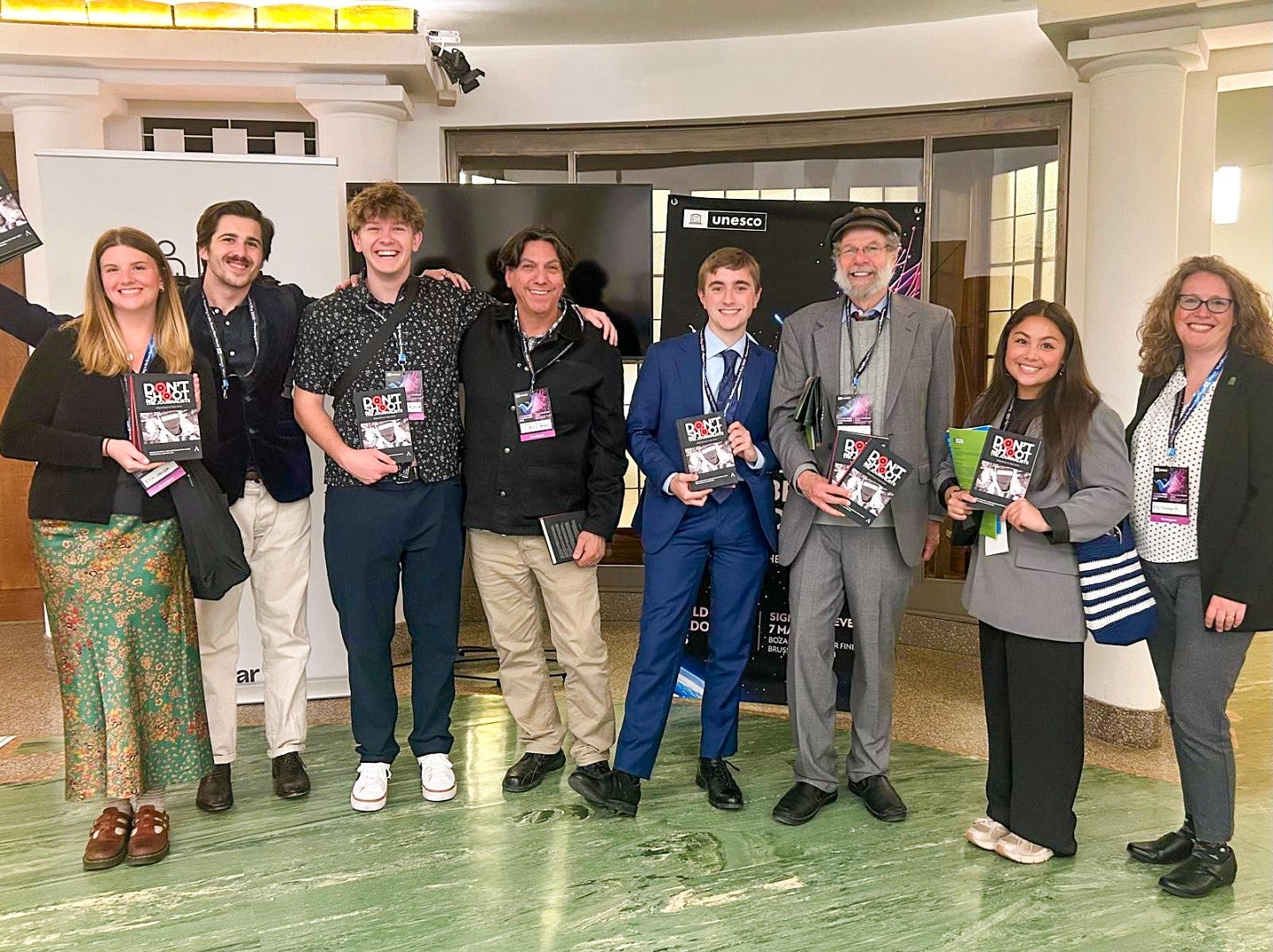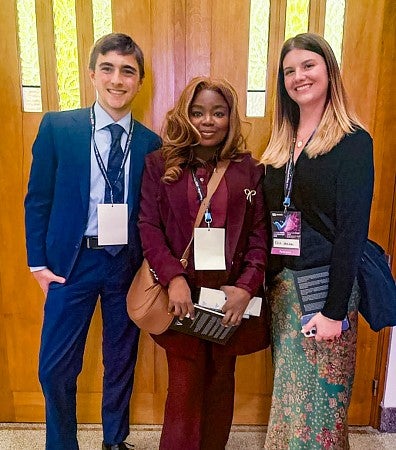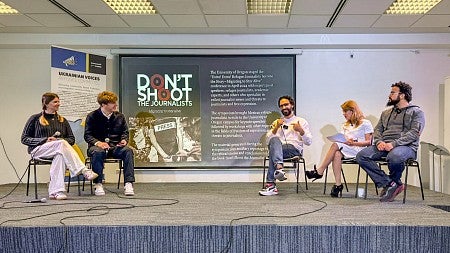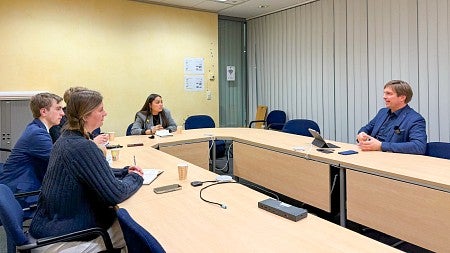Ellie Johnson ’26 traveled to Brussels, Belgium, with three other UO students to report on press freedom.

by Ellie Johnson, Class of ’26
Two of the many things I appreciate about studying at the UO School of Journalism and Communication (SOJC) are the access to seasoned journalists and the opportunities to practice reporting around the world.

In May, I traveled to Brussels, Belgium, as a student research fellow with the UO-UNESCO Crossings Institute for Conflict-Sensitive Reporting and Intercultural Dialogue to attend the 2025 World Press Freedom Day conference hosted by UNESCO. I was accompanied by three other students as well as SOJC professors Peter Laufer and Christopher Chávez and Director of the Global Studies Institute Elly Vandegrift. We spent the week immersed in international media conversations, reporting on press freedom, engaging with global leaders in journalism and communication and even facilitating a book launch. Here are some standout moments I experienced along with students James Lejeune ’26, Sydney Seymour ’25 and Tarek Anthony ’26:
1. Attending World Press Freedom Day at Bozar Centre for Fine Arts
The conference, themed “Reporting in the Brave New World: The Impact of Artificial Intelligence on Press Freedom and the Media,” brought together journalists and policymakers from around the world to explore how AI is reshaping our media landscape. Carlos Eduardo Huertas, director of CONNECTAS — a nonprofit journalism organization focused on critical issues in the Americas — spoke about how Venezuelan journalists are using AI-generated avatars to bypass censorship and continue reporting safely.
I also had the opportunity to interview Nigerian content creator Tobi Ayeni, who uses AI to streamline content creation and reach a broader audience.
“I prioritize using my voice, not keeping silent, because once people know about something, change can happen,” Ayeni said.
Ayeni also spoke passionately about the importance of collaboration between journalists and influencers, saying that we need to use AI as a “weapon of truth” rather than fear it. You can read my full article on Ayeni at the UO-UNESCO Crossings Institute website. Ayeni even expressed her desire to visit the University of Oregon and share her story with students and faculty.

2. Interviewing exiled journalists from Egypt and Afghanistan
Some of the most powerful moments from the week came when we hosted a panel of exiled journalists from the Ukrainian Voices Refugee Committee. Afghan journalist Lailuma Sadid shared that her family has received death threats because of her coverage of women’s rights under Taliban rule. We also heard from Egyptian journalist Ahmed Gamal Ziada, who has been arrested multiple times for his reporting. In 2023, Egyptian authorities arrested his father in apparent retaliation for Ziada’s work, highlighting just how far some governments will go to silence critical voices. Hearing these stories made clear that for many, reporting the truth comes at a personal cost.
3. Hearing how the European Commission is protecting journalists
Our group interviewed Stefan De Keersmaecker, deputy chief spokesperson of the European Commission, about the European Media Freedom Act and the importance of safeguarding independent journalism across the European Union.
“Thanks to the media, there is control on political power,” Keersmaecker said. “They hold us accountable, and that’s essential to democracy.”
He also addressed growing threats like strategic lawsuits against public participation (SLAPP) and disinformation, and he said the commission is investing in legal protections and journalist safety across Europe.

4. The launch of “Don’t Shoot the Journalists: Migrating to Stay Alive”
During the conference, we also helped distribute copies of “Don’t Shoot the Journalists: Migrating to Stay Alive,” an anthology Laufer edited, which features contributions from Chávez, former SOJC student Zachary Jones Neuray ’23 (journalism) and Vandegrift. It explores the lives of journalists forced into exile for reporting the truth, and how migration becomes a form of survival. We freely distributed the book to attendees and panelists, hoping to spark conversation and get more eyes on these powerful, real-world stories.
5. Reporting in real time
Throughout the trip, I reported on panels and interviews and turned these into social media posts and stories published on our UO-UNESCO Crossings Institute website. Acting as a journalist in a global setting sharpened my reporting skills and deepened my understanding of the state of press freedom around the world.
This experience was more than just a weeklong trip to Belgium in the middle of the term — it was a deep dive into the future of journalism. Thanks to the SOJC and the Crossings Institute, I had a front-row seat to conversations shaping the future of global media. The conference is hosted each May in a different city. I would encourage students to take advantage of this opportunity by reaching out to Peter Laufer for more information.
Ellie Johnson, a fourth-year journalism major, is a writer and copy editor for Align magazine. She is also an intern with the Global Studies Institute, where she helps to produce a podcast. She has a passion for cross-cultural storytelling that she is excited to continue after graduation.
